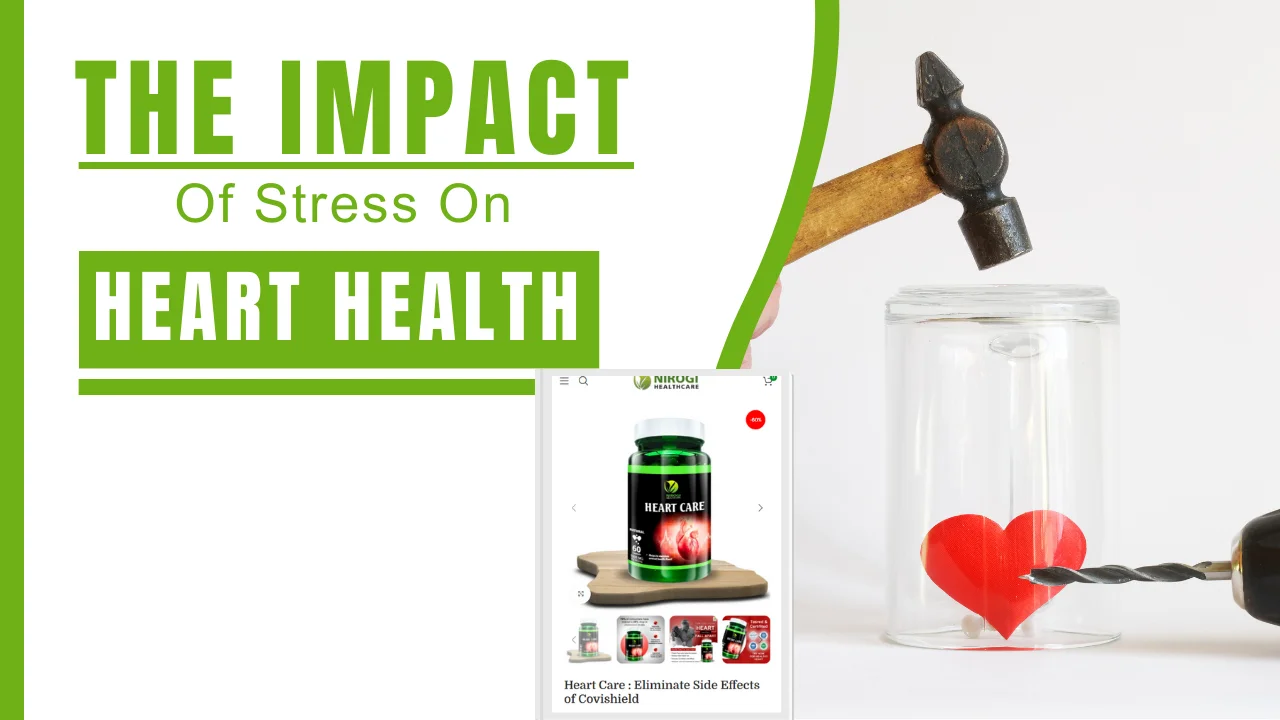Stress has become an inevitable part of modern life. Whether it’s due to work pressure, personal issues, or other external factors, everyone experiences stress to some extent. But did you know that chronic stress can have a significant impact on your heart health? In this blog, we will explore the relationship between stress and heart health, and provide practical tips for managing stress to support a healthy heart.
Table of Contents
The Connection Between Stress and Heart Health
How Stress Affects the Heart
When you experience stress, your body goes into “fight or flight” mode, releasing stress hormones like adrenaline and cortisol. These hormones prepare your body to deal with the perceived threat by increasing your heart rate, blood pressure, and energy levels. While this response is helpful in short bursts, chronic stress can lead to long-term cardiovascular issues.
Physical Effects of Stress on the Heart
- Increased Heart Rate: Chronic stress keeps your heart rate elevated, putting extra strain on your heart.
- High Blood Pressure: Prolonged stress can lead to hypertension, a major risk factor for heart disease.
- Inflammation: Stress can cause inflammation in the body, which is linked to atherosclerosis (narrowing of the arteries).
- Unhealthy Habits: Stress often leads to poor lifestyle choices such as overeating, smoking, or lack of exercise, all of which negatively affect heart health.
Signs of Stress-Related Heart Problems
It’s important to recognize the signs that stress might be affecting your heart. These include:
- Chest pain or discomfort
- Irregular heartbeat
- Shortness of breath
- Fatigue and exhaustion
- Anxiety or depression
If you experience any of these symptoms, it’s crucial to consult with a healthcare professional to rule out any serious heart conditions.
Stress Management Techniques for a Healthy Heart
1. Regular Exercise
Physical activity is one of the most effective ways to combat stress. Exercise helps to release endorphins, the body’s natural stress relievers, and promotes overall cardiovascular health. Aim for at least 30 minutes of moderate exercise, such as walking, cycling, or swimming, most days of the week.
2. Healthy Diet
A balanced diet rich in fruits, vegetables, whole grains, and lean proteins can help manage stress and support heart health. Avoid excessive caffeine, sugar, and processed foods, which can exacerbate stress and negatively impact your heart.
3. Mindfulness and Relaxation Techniques
Practicing mindfulness, meditation, and deep-breathing exercises can help reduce stress levels. Techniques such as yoga and tai chi combine physical movement with mental focus, promoting relaxation and heart health.
4. Adequate Sleep
Quality sleep is essential for stress management and heart health. Aim for 7-9 hours of sleep per night and establish a regular sleep routine to help your body manage stress more effectively.
5. Social Support
Connecting with friends, family, or support groups can provide emotional support and help you manage stress. Don’t hesitate to seek professional counseling if you’re feeling overwhelmed.
The Role of Heart Care Products in Stress Management
At Nirogi Healthcare, we understand the importance of maintaining heart health, especially in stressful times. Our range of heart care products is designed to support your cardiovascular system and help you manage stress effectively. From natural supplements to stress-relief techniques, our products can help you achieve a healthier, more balanced lifestyle.
Conclusion
Understanding the impact of stress on heart health is crucial for taking proactive steps to protect your cardiovascular system. By incorporating stress management techniques into your daily routine and utilizing heart care products, you can reduce the negative effects of stress and promote a healthier heart. Remember, taking care of your heart is a lifelong commitment, and managing stress is a key component of overall heart health.
FAQs
1. How does stress directly affect heart health?
Stress triggers the release of hormones that increase heart rate and blood pressure, which can lead to long-term cardiovascular issues.
2. Can managing stress improve heart health?
Yes, effective stress management can lower blood pressure, reduce inflammation, and promote overall heart health.
3. What are some natural ways to manage stress?
Regular exercise, a healthy diet, mindfulness techniques, adequate sleep, and social support are all natural ways to manage stress.
4. Are there specific products that can help with stress-related heart issues?
Yes, Nirogi Healthcare offers a range of heart care products designed to support cardiovascular health and manage stress effectively.













